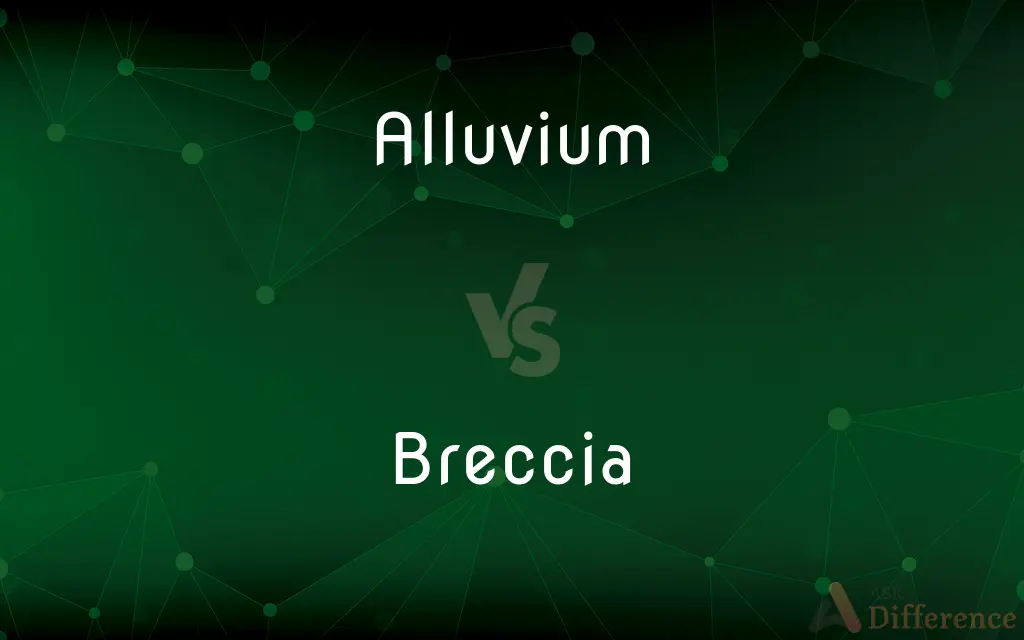Alluvium vs. Breccia — What's the Difference?

Difference Between Alluvium and Breccia
ADVERTISEMENT
Compare with Definitions
Alluvium
Alluvium (from the Latin alluvius, from alluere, "to wash against") is loose clay, silt, sand, or gravel that has been deposited by running water in a stream bed, on a floodplain, in an alluvial fan, or in similar settings. Alluvium is also sometimes called alluvial deposit.
Breccia
Breccia () is a sedimentary rock composed of broken fragments of minerals or rocks cemented together by a fine-grained matrix that can be similar to or different from the composition of the fragments. The word has its origins in the Italian language, in which it means "rubble".
Alluvium
Sediment deposited by flowing water, as in a riverbed, flood plain, or delta. Also called alluvion.
Breccia
Rock composed of sharp-angled fragments embedded in a fine-grained matrix.
Alluvium
Soil, clay, silt or gravel deposited by flowing water, as it slows, in a river bed, delta, estuary or flood plain
ADVERTISEMENT
Breccia
(petrology) A rock composed of angular fragments in a matrix that may be of a similar or a different material.
Alluvium
Deposits of earth, sand, gravel, and other transported matter, made by rivers, floods, or other causes, upon land not permanently submerged beneath the waters of lakes or seas.
Breccia
A rock composed of angular fragments either of the same mineral or of different minerals, etc., united by a cement, and commonly presenting a variety of colors.
Alluvium
Clay or silt or gravel carried by rushing streams and deposited where the stream slows down
Breccia
A rudaceous rock consisting of sharp fragments embedded in clay or sand
Share Your Discovery

Previous Comparison
Alluvium vs. Alluvial
Next Comparison
Analphabet vs. Illiterate














































